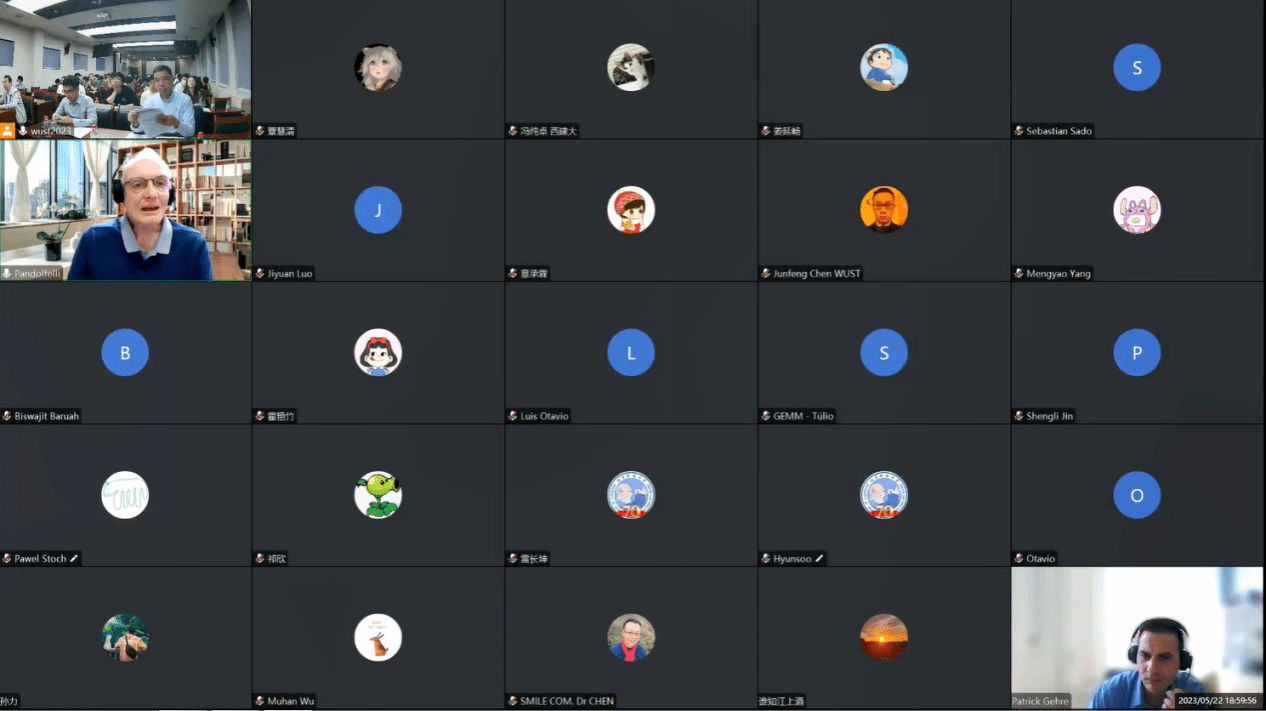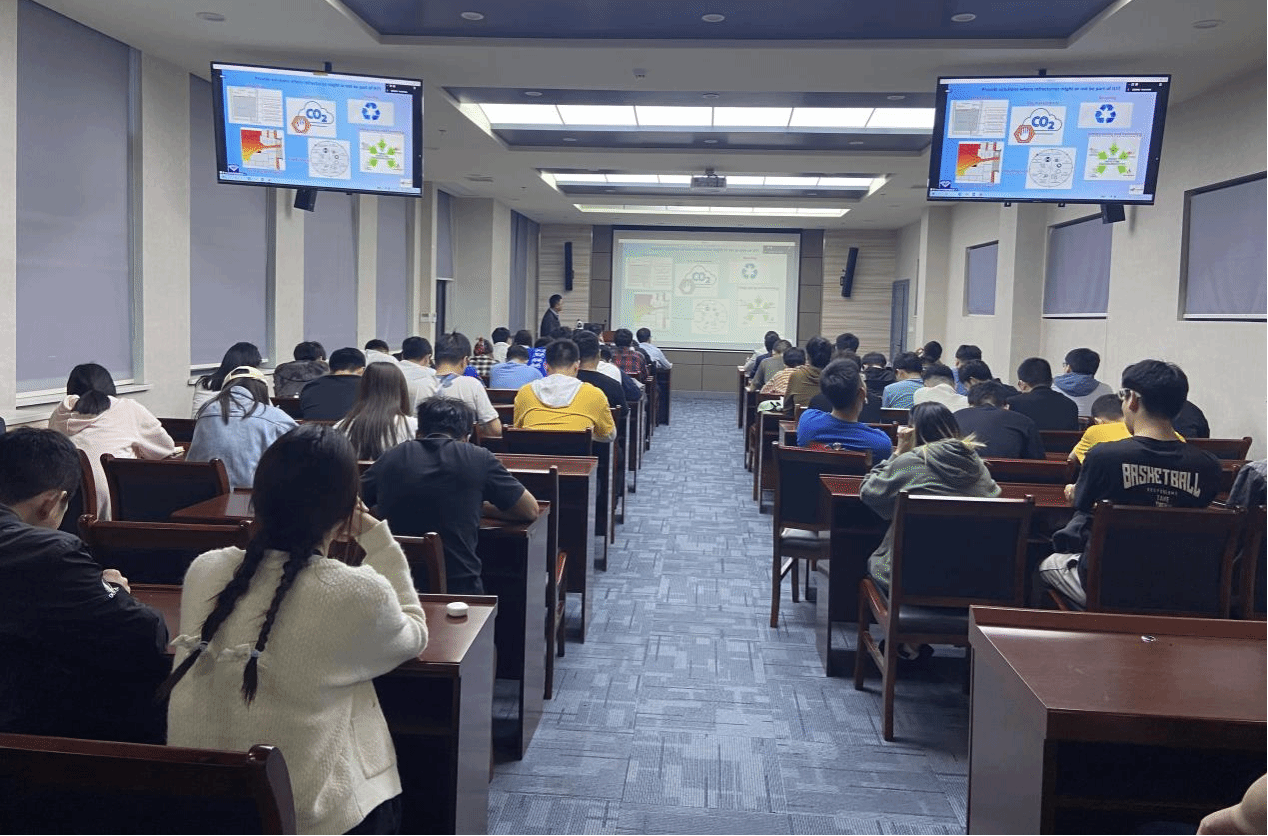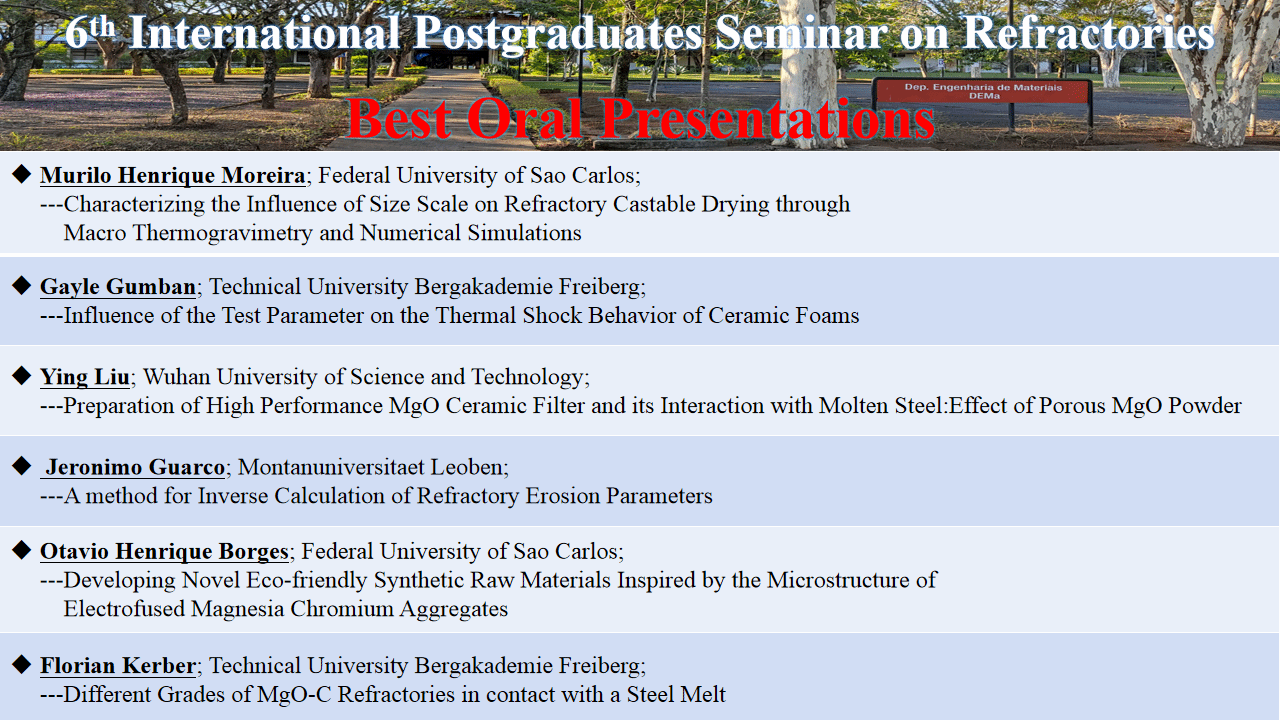From May 22th to 24th, the 6th International Postgraduate seminar on Refractories was successfully held. The seminar is supported by The State Key Laboratory of Refractory and Metallurgy and National-provincial Joint Engineering Research Center of High Temperature Materials and Lining Technology of Wuhan University of Science and Technology. Since the last seminar, it has a presidium composed of 8 professors from 7 countries, including China, Austria, Germany, France, Brazil, Poland and South Korea. The secretariat is fixed in Wuhan University of Science and Technology. Professor Victor Carlos Pandolfelli of the Federal University of Sao Carlos, Brazil, is the rotating chair of the seminar. The seminar was a combination of online and offline. More than 200 experts and scholars from 14 universities in 6 countries, China, Austria, Germany, Brazil, Poland and India, participated in the seminar.

On May 22th, the opening ceremony of the seminar was held in the 1004 conference room of the Iron and Steel Building. Professor Feng Tao, Vice Dean of the Graduate School of Wuhan University of Science and Technology attended the opening ceremony and delivered a speech. Professor Victor Carlos Pandolfelli delivered a speech online. There were about 150 online participants and 60 offline participants.

In this seminar, Prof. Victor Carlos Pandolfelli, Federal University of Sao Carlos, Brazil; Prof. Harald Harmuth, Montanuniversitaet Leoben, Austria; Prof. Patrick Gehre, Technische Universitaet Bergakademie Freiberg, Germany; and Pawel Stoch, AGH University of Science and Technology, Poland, Professor Luping Fu, Associate Professor of Wuhan University of Science and Technology and Mithun Nath, Distinguished Professor, served as the chairman of the branch and presided over each session of the meeting. Thirteen postgraduate from the Federal University of Sao Carlos, Brazil, Montanuniversitaet Leoben, Austria, Technische Universitaet Bergakademie Freiberg, Germany, AGH University of Science and Technology, Poland, and ational Institute of Technology Rourkela, India, And ten postgraduate from Wuhan University of Science and Technology, University of Science and Technology Beijing, University of Science and Technology Liaoning, Northeastern University, Xi 'an University of Architecture and Technology, Shanghai University, China University of Geosciences (Beijing), Henan University of Technology made 23 academic presentations. The reports covered the calculation and simulation related to refractory materials, and the control of refractory performance through the selection and introduction of new raw materials. Related to thermal shock resistance, the interaction between refractory and alloy melt and so on.
On May 24th, the closing ceremony of the seminar was held online. Professor Li Yawei, Deputy director of the State Key Laboratory of Refractory and Metallurgy, delivered the closing speech. Professor Victor Carlos Pandolfelli made a summary and analysis of the seminar and announced the 6 postgraduate who won the best oral presentation. According to the resolution of the presidium of the seminar, Prof. Victor Carlos Pandolfelli announced that the 7th International Postgraduate Seminar in 2024 will be held by Wuhan University of Science and Technology. Prof. Yawei Li will serve as the rotating chairman, Prof. Wenjie Yuan and Associate Professor Ning Liao will serve as the secretary of the seminar.

This seminar has been held for six consecutive sessions and has become an important platform for postgraduate training and academic exchanges among universities and research institutes in the field of refractory materials. An important part of the training work, this seminar has won the "Belt and Road" International Science and Technology Organization Platform Construction Project of China Association for Science and Technology, the second batch of new engineering research and practice projects of the Ministry of Education (E-CL20201928), Hubei Province Silicate Society Refractory Materials Supported by the branch and Hubei University Provincial Teaching Research Project (2021240).
